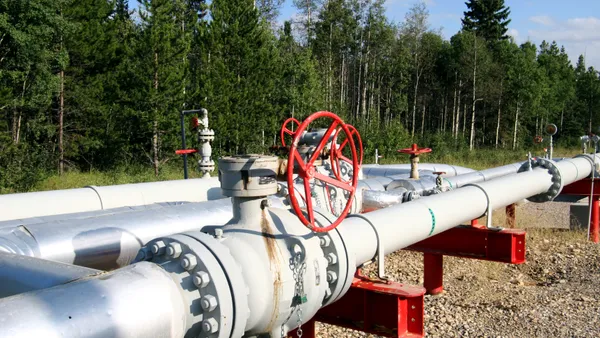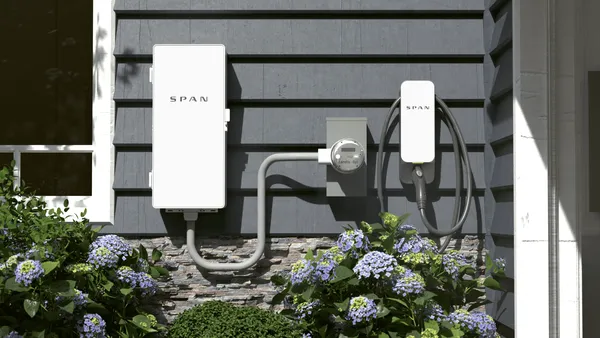Dive Brief:
-
FirstEnergy, a company emerging from a corruption scandal, is making progress on revamping its corporate culture and is on track to regain an investment grade credit rating, company officials told analysts Friday.
-
FirstEnergy had three "very good meetings" with credit rating agencies this month to discuss the company's transformation and efforts to improve its balance sheet, Chief Executive Officer Steven Strah said during an earnings call.
-
FirstEnergy's first quarter net earnings fell 14% to $288 million from $335 million in the year-ago period as revenue increased to $2.4 billion from $2.2 billion in the same period, driven by accounting changes, an equity transaction and a credit to Ohio ratepayers, the company said.
Dive Insight:
FirstEnergy is continuing to work through issues related to bribes it doled out in support of HB 6, energy legislation in Ohio that provided subsidies to nuclear power plants owned by a former subsidiary, now called Energy Harbor.
A FERC investigation into FirstEnergy's lobbying and governmental affairs activities concerning HB 6 will likely lead to a financial loss, the company said in its latest earnings report filed with the Securities and Exchange Commission Thursday.
FirstEnergy is cooperating with the SEC's investigation related to the company's bribery scandal and a settlement of shareholder derivative lawsuits is in the approval process, company officials said during an earnings conference call Friday.
Following a Federal Energy Regulatory Commission audit and state reviews, FirstEnergy will no longer capitalize about $150 million in annual vegetative management and other corporate expenses, Jon Taylor, FirstEnergy chief financial officer, said.
As a result, FirstEnergy may make refunds to transmission customers, the Akron, Ohio-based company said in its quarterly earnings report. FirstEnergy's practice of capitalizing vegetative management costs led the company to overstate its "electric plant in service" and understate its operating expenses, according to FERC.
Meanwhile, FirstEnergy is making progress on its cultural transformation, which includes fostering a trusting environment where company leaders engage in two-way dialogue with other employees, Strah said.
The company is also focused on improving relations with its customers, according to Strah.
As part of that effort, FirstEnergy is reaching out to customers who may need financial help, Strah said. More than 250,000 customers were receiving $71 million through financial assistance programs at the end of March, up 17% from the first quarter in 2021, Strah said.
Customer past due balances are below pre-Covid levels in Ohio and West Virginia, reducing the risk of bad debt, according to Strah.
On the financial front, FirstEnergy officials said the company was improving key metrics, such as its funds from operations to debt ratio, that could lead to an investment grade rating. Fitch Ratings Service, Moody's Investors Service and Standard & Poor's Ratings Service downgraded FirstEnergy to "junk" status in November 2020 in the wake of the corruption scandal.
"We are taking those steps needed to get to investment grade and, as we have stated before, that is very important for us," Strah said.
Taylor said he was optimistic an upgrade could be coming this year from some of the credit rating agencies.
FirstEnergy is considering combining its Ohio utilities and separately its Pennsylvania utilities, a change that could produce financing savings, according to Strah. FirstEnergy already effectively runs the utilities — three in each state — as single entities, he noted.
FirstEnergy is on track to sell a 19.9% stake in FirstEnergy Transmission to Brookfield Super-Core Infrastructure Partners, Strah said. The $2.4 billion deal, approved by FERC on April 21, is set to close by May 30, the company said in its quarterly earnings report.
FirstEnergy expects its rate base to grow by 6% a year through 2025 and its average, long-term operating earnings per share to increase 6% to 8% a year, the company said in its quarterly presentation.
FirstEnergy is also preparing to spend $17 billion in capital expenditures from 2021 through 2025, including $8.6 billion on grid modernization and resiliency and $6.5 billion on "base reliability" and a West Virginia vegetative management program, according to the presentation.














